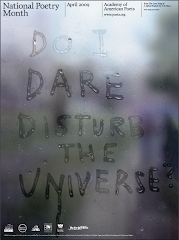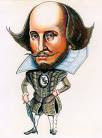Said on effectively bringing attention to works by living, non-white/male authors:
"What I am talking about therefore is the opposite of separatism, and aslo the reverse of exclusicism. It is only through the scrutiny of these works as literature, as style, as pleasure and illumination, that they can be brought in, so to speak, and kept in. Other wise they will be regarded only as informative ethnographic specimens, suitable for the limited attention of experts and area specialists," (196).
Throughout his essay, Said addresses the issue of fairly acknowledging nationalism and the literature that results from it while still maintaining a "worldy" stance.
Based on the quote above, my question to the class is:
Do you think it's possible for us to evaluate non-western/dead male literature from a neutral standpoint?
(What I mean is, have we made such a huge deal out of including and acknowledging other nation's literature that we have labeled it as african, chinese, portugese, (etc) literature? Why not take off the prefixes and labels and just call it LITERATURE?)
I can clarify my question in class tomorrow, because I think it is a really important idea to consider -but right now my brain is currently mush due to Tylenol Cold medicine.
Monday, April 6, 2009
Subscribe to:
Post Comments (Atom)













Jess-i-nator,
ReplyDeleteI don't understand why we can't just lump it into the all-encompassing category of literature. Sure, we can look at a certain text through a certain lens, but why should we completely group certain pieces of literature into Women's Literature, African Literature, Asian Literature, etc.? If we just kept all literature together, we wouldn't be creating groupings that hinder our analysis of the text. For example, in a Women's Literature course, the gender lens is out in full force. This lens can sometimes minimize a group's analysis of a piece's form, style, language, etc. The study becomes more sociological than anything else. Courses should be chronological and genre-based to minimize this effect.
-Megaroo
THANK YOU FOR UNDERSTANDING.
ReplyDeleteall is not lost - my brain deteriorated even further from the state it was in when we had class yesterday.
lens. that's the word i was looking for.
Jessy (and Megan!),
ReplyDeleteI agree that we should be able to simply call everything literature and leave it at that. Calling attention to the differences between groups (by labeling works "women's literature" "African American literature" etc.) does not really help to diminish the (perceived) boundaries between groups.
I think the problem lies in curriculum creation. Teachers and professors must have some method for dividing literature into groups so that they can effectively do their jobs as educators... but why can't we simply divide by genre? Autobiography, novel, poem, etc. I think the reason this is not the only method of division is that, in reality, literature written by anyone other than a white man is neglected. For so long, white men's literature has been the ONLY literature. This means that professors have to teach themselves how to teach other authors' works, and it means that ever professor who creates the curriculum for a class must be constantly aware of including the formerly excluded. This is not an excuse for not doing so, but I think it may be an explanation for why these classifications are so prevalent.
I hope that eventually classes such as women's lit and Native American lit and so forth can be done away with because the literature of these groups will be inextricably interwoven with other groups' works... but I think that until our educators interweave these works without even thinking about it we will have to keep such classes in the curriculum to ensure that students are exposed to important works from all groups.
Hmm... do you think that was a long enough response? It would be great if it made sense... but I'm not sure it does. :/
BTW, I hope your cold is ALL BETTER!!!
Abby